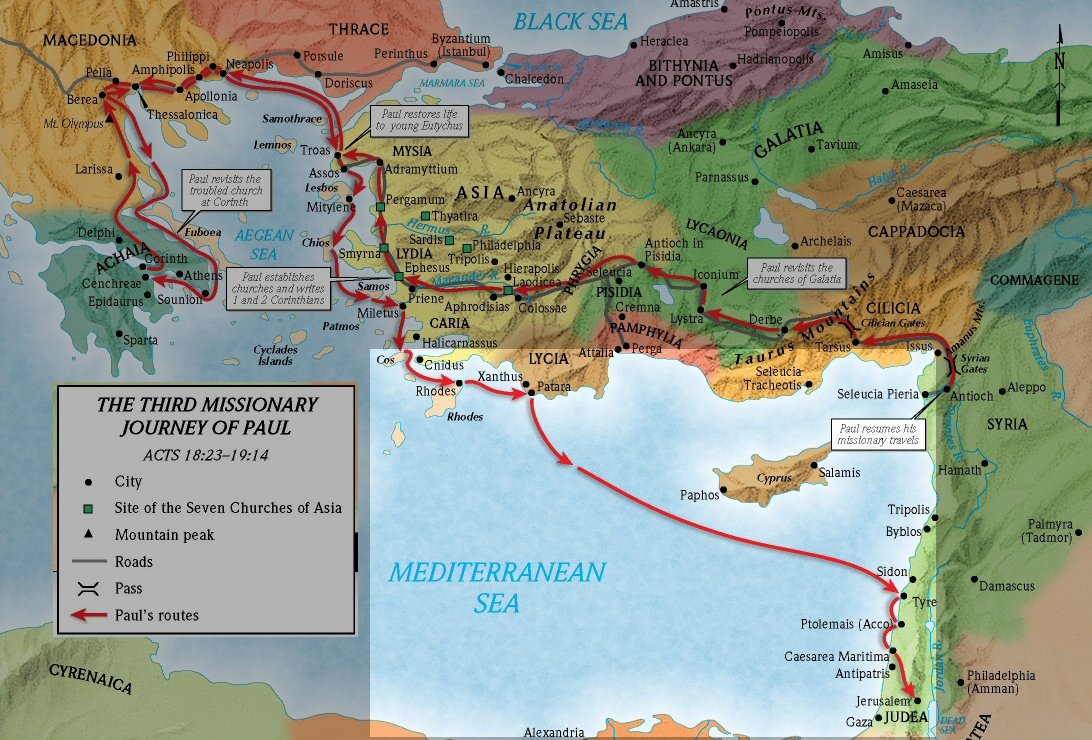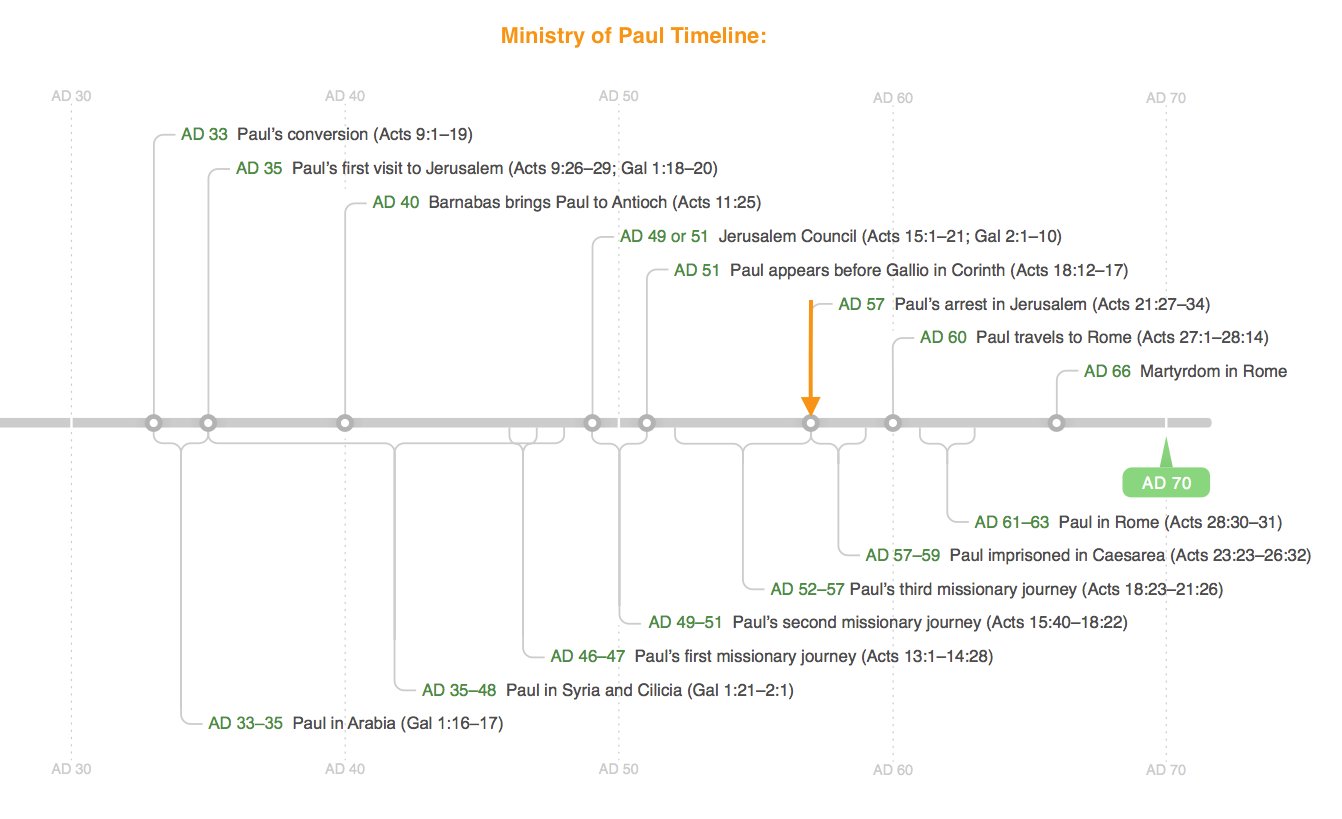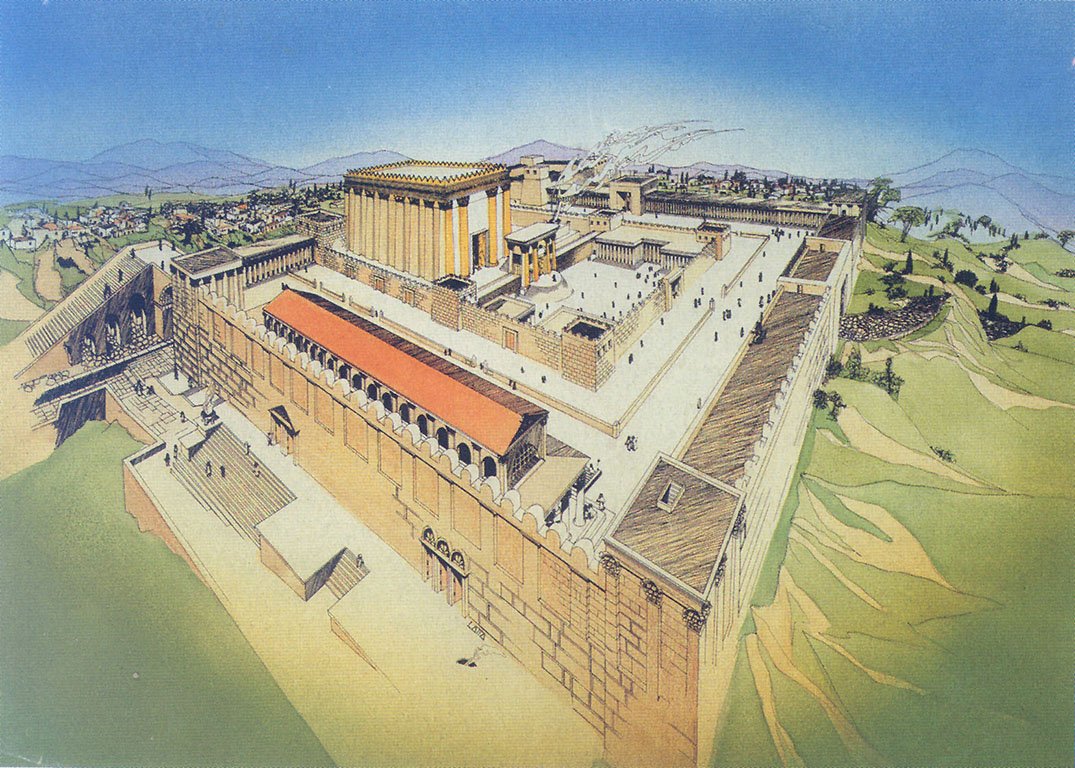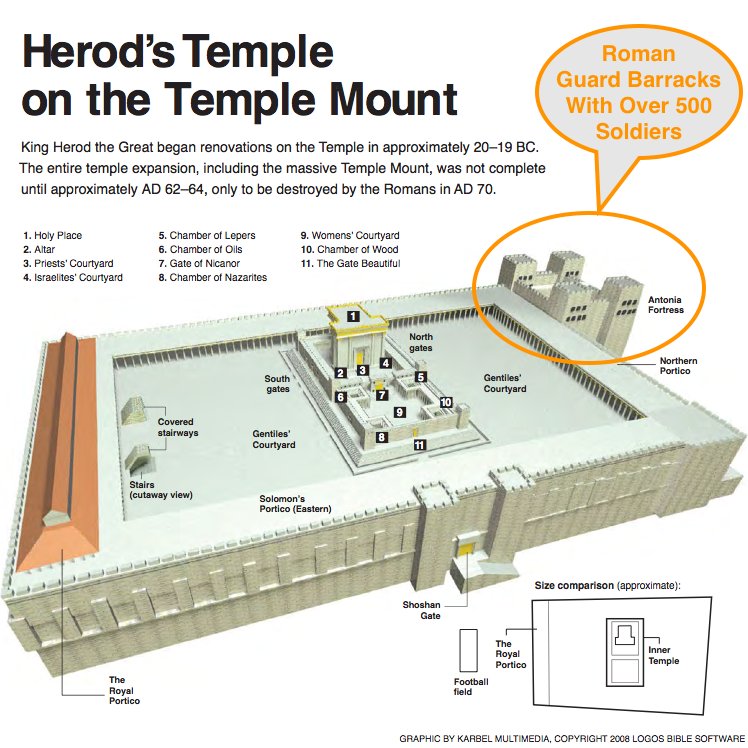Blog Post
Posted by Dion Todd September 2nd, 2018 3,864 Views 0 Comments
RHM Bible Study, Acts 21 from Refreshing Hope Ministries on Vimeo.
Today we are going to study Acts chapter 21 in depth. You can follow along in your own Bible if you like. I will be reading from the World English Bible because it is the only modern English translation that is copyright free, and I can read the entire Bible on video without any legal drama or breaking anyone’s rules. After you finish this study, please take the accompanying quiz to test your knowledge. Thanks to everyone that has participated so far. Let’s get started:
First let’s set our location and do a brief catchup. In Acts chapter 20, Paul is on his third mission trip. He traveled from Ephesus through Macedonia, Greece and back over to Troas. There he raised a young man from the dead that had fallen from a window, preached all night, then took a ship bound for Jerusalem. The ship stopped in Miletus for a few days and Paul sent for the elders of Ephesus, to meet with them once more. He told them they would not see him again, and boarded a ship. Paul is sailing on the Mediterranean Sea and gradually making his way to Jerusalem for the feast of Pentecost. That is where we begin our story today.
Acts Chapter 21 beginning in verse 1, reading from the World English Bible: When we had departed from them and had set sail, we came with a straight course to Cos, and the next day to Rhodes, and from there to Patara. 2 Having found a ship crossing over to Phoenicia, we went aboard, and set sail. 3 When we had come in sight of Cyprus, leaving it on the left hand, we sailed to Syria and landed at Tyre, for the ship was there to unload her cargo.

4 Having found disciples, we stayed there seven days. These said to Paul through the Spirit that he should not go up to Jerusalem. 5 When those days were over, we departed and went on our journey. They all, with wives and children, brought us on our way until we were out of the city. Kneeling down on the beach, we prayed. 6 After saying goodbye to each other, we went on board the ship, and they returned home again.
While Paul was in Tyre, more prophets warned Paul about the danger waiting for him in Jerusalem. Acts 20:23 tells us that Paul heard this in “every city.” The Holy Spirit told them that Paul would soon undergo suffering for Christ, a message that naturally gave the believers deep concern.
The Spirit did not tell them to inform Paul that he was not to go to Jerusalem. The Spirit predicted persecution was coming against the apostle, and the people’s love for Paul caused them to beg him not to go. They warned him what was coming, but this confirmed what Paul already knew. The Lord confirms His word out of the mouth of two or three witnesses (2Corinthians 13:1). They prayed together, and then Paul continued on his voyage.
It must have been wonderful for Paul and his companions to find Christians in virtually every city they stopped at. This showed how Christianity was expanding and growing across the Roman Empire. Christians were now found everywhere, it seemed.
7 When we had finished the voyage from Tyre, we arrived at Ptolemais. We greeted the brothers and stayed with them one day. 8 On the next day, we who were Paul’s companions departed, and came to Caesarea. We entered into the house of Philip the evangelist, who was one of the seven, and stayed with him. 9 Now this man had four virgin daughters who prophesied.
Paul arrived in Caesarea, the port city of Jerusalem. He could now enter Jerusalem anytime he wished, but wanted to wait until Pentecost. Philip the evangelist, one of the seven deacons from Acts chapter 6, was the man who first took the gospel to Samaria, and then baptized the Ethiopian eunuch. He had married a wife, settled down in Caesarea, and God had blessed him with four gifted daughters, who may have further prophesied of Paul’s difficult future.
10 As we stayed there some days, a certain prophet named Agabus came down from Judea. 11 Coming to us and taking Paul’s belt, he bound his own feet and hands, and said, “The Holy Spirit says: ‘So the Jews at Jerusalem will bind the man who owns this belt, and will deliver him into the hands of the Gentiles.’ ”
The prophet Agabus now came along and foretold Paul’s imminent future by tying himself up with Paul’s belt. Agabus did not interpret the prophecy or say whether Paul should or should not go to the Holy City, but Paul’s friends did! “When we heard this, we and the people there pleaded with Paul not to go up to Jerusalem” (v. 12). “We” means that even Dr. Luke was pleading with Paul not to go on to Jerusalem. They added a human interpretation to the prophecy “Don’t go to Jerusalem!” The warnings from the Holy Spirit were intended to prepare Paul, not to stop him from going.
12 When we heard these things, both we and the people of that place begged him not to go up to Jerusalem. 13 Then Paul answered, “What are you doing, weeping and breaking my heart? For I am ready not only to be bound, but also to die at Jerusalem for the name of the Lord Jesus.” 14 When he would not be persuaded, we ceased, saying, “The Lord’s will be done.”
The pressure upon Paul must have been unbearable. He had received months, perhaps years of vague prophecies about future persecution; the wrenching farewell to the Ephesian elders; the believers in Tyre; Agabus’ dramatic prophecy; and now everyone, even trusted Luke, was begging Paul to turn back. The apostle Paul finally cried out, “Why are you weeping and breaking my heart? I am ready not only to be bound, but also to die in Jerusalem for the name of the Lord Jesus” (v. 13).
Paul acknowledged that they were tearing him apart, that what satan and his forces could not do was now happening through his brothers and sisters. But then, like the Lord Jesus himself who “resolutely set His face to go to Jerusalem” (Luke 9:51), the great apostle Paul renewed his resolve and continued on God’s path for him, regardless of the potential cost.
The Holy Spirit will often tell you what is coming down the road in your life. He told me a long time ago that I would be in ministry one day, and I kept getting this word from believers, many who I had never seen before. Twenty years passed, but today I am here as a Pastor. We went to a prophetic conference once and a young lady there told me that I was going to be a writer. That was so far away from my abilities and my mind that I thought she had missed it. I released my fourth book this week. I want to be clear that the Holy Spirit still speaks through His people.
In Paul’s life, persecution was coming and the Holy Spirit warned him at various stages to prepare him so that this would not come as a surprise. Though all the people tried to discourage him going, he would not be deterred and he headed for Jerusalem.
This ends the epic third missionary journey of Saul of Tarsus, the Apostle Paul, the missionary general of the apostolic church.
15 After these days we took up our baggage and went up to Jerusalem. 16 Some of the disciples from Caesarea also went with us, bringing one Mnason of Cyprus, an early disciple, with whom we would stay.
Why did Paul encounter such pressure from his friends to go against what he knew to be the will of God? First, Paul’s acquaintances demonstrated the all-too-common inclination of being quick to know God’s will for someone else. We need to avoid making snap judgments, or offering spiritual formulas. What matters is God’s will for us, not what others think we should do.
Second, the well-meaning believers were trying to make God’s will conform to their own preconceptions and mindset. They thought: “If Paul goes to Jerusalem, he is going to suffer, and we will be deprived of his ministry. This cannot be God’s will for him.”
American culture is so much like this today: “God wants me to be happy. Therefore if I am not happy, I must not be in His will.” “God does not want me to suffer pain. So if I am in pain, I am not in God’s will.” “God wants me to be happy, and that new car makes me happy, so that must be God’s will for me.” We can expand this to cover every desire imaginable, but it doesn’t make it true.
Somehow we have distorted this simple truth into something more acceptable today. If you read the Old Testament prophets, their life was anything but easy. Joseph was sold as a slave and went to prison. Jeremiah spent some time in the pits. Jonah spent some time in a fish. Daniel spent some time in a lion’s den, and Shadrach spent time in a furnace. Elijah laid under a tree and prayed that he might die. Jesus died while nailed to a cross.
I want to make it clear that your state of happiness, and being in God’s will have little to do with each other. I spent a year polishing brass, black from head to toe and when I washed, my skin would turn a sickly green color from the brass dust, because that is where He wanted me during that season. Your only hope is to learn what Paul did, learn to be content wherever you are, whatever you are doing:
Philippians 4:11–12 AMP. I have learned how to be content (satisfied to the point where I am not disturbed or disquieted) in whatever state I am. I know how to be abased and live humbly in straitened circumstances, and I know also how to enjoy plenty and live in abundance. I have learned in any and all circumstances the secret of facing every situation, whether well-fed or going hungry, having a sufficiency and enough to spare or going without and being in want.
Paul was content, and God’s path was more important to him than his own comfort. No healthy Christian ever chooses suffering. Paul chooses God’s will, as Jesus did in the garden of Gethsemane, whether that means suffering or not. In fact, Paul going to Jerusalem is remarkably parallel to Jesus Christ’s: the plots of the Jews, being handed over to the Gentiles, a triple prediction of the coming suffering, his steadfast determination, a trusting surrender to God’s will, and all that it brought with it.
17 When we had come to Jerusalem, the brothers received us gladly. 18 The day following, Paul went in with us to James; and all the elders were present. 19 When he had greeted them, he reported one by one the things which God had worked among the Gentiles through his ministry.
With all the pilgrims visiting Jerusalem during the feasts of Passover and Pentecost, there may have been two million people in the city when Paul visited. After meeting with “the brothers,” who greeted Paul and his entourage warmly, they met the following day with the leadership of the Jerusalem church.
Some evidence indicates there were seventy elders there, patterned after the Sanhedrin. If so, a rather imposing group questioned Paul and his companions about the trip. The leader was the venerable “James the Just,” a brother of Jesus and a man famous among all the Jews for his piety. Eusebius said his knees were like those of a camel because of all the time he spent in prayer.
Paul did two things in this interview. First, he shared the amazing things God had done among the Gentiles: the Ephesian riots that happened because the trade of idols declined when people heard the gospel; the power of the gospel in Athens and Corinth; the apostle’s escaping his would-be assassins in Greece; poor Eutychus’ swan dive out the window, and his miraculous resurrection in Troas.
Though Luke does not mention it here, Paul presented the love offering taken among the Gentiles for the poor brethren there. Delivering this gift was Paul’s chief motivation for going to Jerusalem, though he feared that it would be rejected (Romans 15:25–31) because of rising Jewish nationalism, and the increasing number of legalistic Christians. Paul hoped that the love offering would help build unity between the Jewish and Gentile believers.
20 They, when they heard it, glorified God. They said to him, “You see, brother, how many thousands there are among the Jews of those who have believed, and they are all zealous for the law. 21 They have been informed about you, that you teach all the Jews who are among the Gentiles to forsake Moses, telling them not to circumcise their children and not to walk after the customs. 22 What then? The assembly must certainly meet, for they will hear that you have come.
It was probably a relief for Paul when they accepted the love offering from the Gentiles that he had brought with him, and as a result, “they praised God”. Everything was going great, so much so that Paul was likely caught off-guard when the elders informed him there was a problem with him being in Jerusalem.
A quick flash back for those that missed it: In Acts chapter 15, some men from the Jerusalem church came to Antioch and told them that they had to be circumcised and keep the law of Moses to be saved. The council of the Apostles and Elders met to settle that, but there were many there who were legalistic and wanted the gentiles to basically become Jews and follow the law of Moses. Paul was accompanied by non-Jewish believers here, and the mother church at Jerusalem was slow to accept Gentiles.
They had found it difficult to believe Peter about the conversion of Cornelius, and they got upset with him for entering the house of a Gentile. They could hardly believe that God had given the Gentiles the Holy Spirit like them. They were suspicious of the work among the Samaritans as well, and Jews considered Samaritans “dogs”.
On the other hand, the church at Jerusalem was quick to accommodate Jews, and readily received into membership those who had made no break at all with Judaism. These just added Jesus to their practice of Judaism, so it became a mix of Jewish customs, and Christianity. They felt that to be a Christian, you had to keep the law of Moses like circumcision, eat “kosher” foods, and so much more. They had expanded it to over 600 commandments. In the same way, they had even condemned Jesus for not keeping the traditions of the elders. The Lord Himself, was not Holy enough for them, and neither was Paul.
The statement at the end of verse 20—“all of them are zealous for the law”—was saying in effect, “We are saved by grace, but we are kept saved by keeping the Law.” The mother church at Jerusalem was almost entirely from a Jewish background, and these Christians still valued many of the Jewish laws and customs they grew up with. It had become a compromising, prejudiced church, and the elders’ suggestion was questionable, but predictable.

23 Therefore do what we tell you. We have four men who have taken a vow. 24 Take them and purify yourself with them, and pay their expenses for them, that they may shave their heads. Then all will know that there is no truth in the things that they have been informed about you, but that you yourself also walk keeping the law. 25 But concerning the Gentiles who believe, we have written our decision that they should observe no such thing, except that they should keep themselves from food offered to idols, from blood, from strangled things, and from sexual immorality.”’
The Christian community of Jerusalem had heard bad, false rumors about Paul. They heard that he had become essentially anti-Jewish, and told Jewish Christians that it was wrong for them to continue in Jewish laws and customs. Paul was actually fine with them observing their customs, as long as they didn’t think it made them more right before God. That is where the division came, Salvation by works of the law, or grace through Jesus Christ. Paul basically believed that their ceremonies were useless, but not destructive. Though he had sharply disagreed when they tried to force Gentiles to observe their law and customs in order to be saved in Acts 15.
They asked Paul to pick up the considerable expenses of four men who had taken a Nazirite vow, that is, a vow to abstain from meat and wine and not to cut their hair for thirty days. Paul would have to undergo a seven-day ritual of purification, and pay for three animal offerings for each man, plus other offerings as well. Paul was not against the Nazirite vow, for he seems to have taken one himself in Acts 18:18. They were not asking Paul to compromise his Gentile ministry, but they wanted to portray him as a more legalistic Jew than he actually was. Paul did not compromise what he believed here, but if you read Galatians, he was getting pretty close, for he despised mixing legalism with Christianity.
So why did Paul go along with the Jerusalem elders’ advice? Because he loved the Jewish nation. He wanted unity between the Jewish and Gentile churches. Paul wanted to reach everyone that he could and if he could reach the Jews by doing this for them, then he was happy to do so. He wrote in 1Corinthians 9:19:
“For though I am free from all men, I have made myself a servant to all, that I might win the more; and to the Jews I became as a Jew, that I might win Jews; to those who are under the law, as under the law, that I might win those who are under the law; to those who are without law, as without law (not being without law toward God, but under law toward Christ), that I might win those who are without law; to the weak I became as weak, that I might win the weak. I have become all things to all men, that I might by all means save some. Now this I do for the gospel’s sake, that I may be partaker of it with you.” 1 Corinthians 9:19–23 NKJV.
26 Then Paul took the men, and the next day purified himself and went with them into the temple, declaring the fulfillment of the days of purification, until the offering was offered for every one of them. 27 When the seven days were almost completed, the Jews from Asia, when they saw him in the temple, stirred up all the multitude and laid hands on him, 28 crying out, “Men of Israel, help! This is the man who teaches all men everywhere against the people, and the law, and this place. Moreover, he also brought Greeks into the temple, and has defiled this holy place!”
Some Jews from Asia, where Paul had made a lot of jealous enemies, stirred up the huge, highly religious crowd of Jews against him. This was during the big feasts of Judaism, Passover and Pentecost, and the city was packed with travelers. The charges against Paul in Acts 21:28 are an echo of the charges that Stephen was executed for in Acts 6:13. Paul had been there, now he is accused in a similar way. Their accusations against Paul were false, but that does not usually matter to a rioting crowd.
29 For they had seen Trophimus, the Ephesian, with him in the city, and they supposed that Paul had brought him into the temple. 30 All the city was moved and the people ran together. They seized Paul and dragged him out of the temple. Immediately the doors were shut. 31 As they were trying to kill him, news came up to the commanding officer of the regiment that all Jerusalem was in an uproar.

It was absolutely prohibited for Gentiles to go beyond the “Court of the Gentiles” in the temple grounds. Signs were posted which read in both Greek and Latin: “No foreigner may enter within the barricade which surrounds the temple and enclosure. Any one who is caught trespassing will bear personal responsibility for his ensuing death.” The Romans were so sensitive to this that they authorized the Jews to execute anyone that offended in this way, even if the offender was a Roman citizen.
The angry mob dragged Paul out of the temple, shut the doors of the gate called “beautiful” behind them, and then began to beat him to death.
32 Immediately he took soldiers and centurions and ran down to them. They, when they saw the chief captain and the soldiers, stopped beating Paul. 33 Then the commanding officer came near, arrested him, commanded him to be bound with two chains, and inquired who he was and what he had done. 34 Some shouted one thing, and some another, among the crowd. When he couldn’t find out the truth because of the noise, he commanded him to be brought into the barracks.

35 When he came to the stairs, he was carried by the soldiers because of the violence of the crowd; 36 for the multitude of the people followed after, crying out, “Away with him!”
“Away with him” did not mean, ‘Take him away from the temple area.’ They meant ‘Remove him from the earth.’ They wanted Paul dead. The mob was so violent that the soldiers had to carry Paul up the stairs.
37 As Paul was about to be brought into the barracks, he asked the commanding officer, “May I speak to you?” He said, “Do you know Greek?
At first, the Roman commander thought that Paul was a terrorist, and was surprised that Paul was an educated man and could speak Greek. The language was a surprise, because both the language and phrasing showed that Paul was a man educated in the Greek world, and not your average trouble maker.
38 Aren’t you then the Egyptian, who before these days stirred up to sedition and led out into the wilderness the four thousand men of the Assassins?”
The Egyptian mentioned here was also mentioned by the Jewish historian Josephus. He had led a ragged army of four thousand men to the Mount of Olives where they declared they would take over the temple mount. Roman soldiers quickly scattered them, but the leader got away. The officer thought this may have been Paul.
39 But Paul said, “I am a Jew, from Tarsus in Cilicia, a citizen of no insignificant city. I beg you, allow me to speak to the people.”
When Paul identified himself to the Roman commander, it put him in an entirely different standing. Paul was a citizen of Tarsus, a Roman citizen, and not a suspected terrorist.
40 When he had given him permission, Paul, standing on the stairs, beckoned with his hand to the people. When there was a great silence, he spoke to them in the Hebrew language, saying,
The Roman commander gave Paul permission to speak to the crowd. He probably recognized that he had done wrong to Paul by binding a Roman citizen with chains, and hoped that Paul’s speech might quiet down the mob.
This was an opportunity Paul had waited for a lifetime. He had an incredible passion for the salvation of his fellow Jews (Romans 9:1–5), and probably thought of himself as uniquely qualified to effectively communicate the gospel to them, he only had the right opportunity. He was one of them, a Pharisee of Pharisees.
Paul stood on the stairs and motioned with his hand to the people. When there was a great silence, he spoke to them in the Hebrew language. Paul, stood on the stairs overlooking the massive open courtyard of the temple mount, crowded with people. He made a sweep of his hand and the angry, rioting mob fell silent. Then, Paul spoke to them in the Hebrew language, identifying himself with his Jewish audience, not with his Roman protectors.
We will continue Paul’s speech next week!
This concludes today’s chapter of our ongoing Bible Study. Thank you for participating and being a part of Refreshing Hope! To complete this study, we invite you to test your knowledge with the accompanying quiz!

This blog post has an accompanying Bible quiz: Acts Chapter 21

